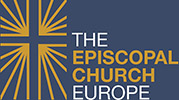In the Episcopal Church, we understand Christian formation to mean lifelong process of growing in relationship with God, self, and others, and all creation, becoming transformed into the people God want us to be. Lifelong Christian formation describes the many processes by which we live into the Baptismal Covenant. It encompasses a broad set of activities, supported by a rich array of communities and institutions, serving people from cradle to grave. We are formed through knowledge, service, and love of God, as followers of Christ.
Grounded in Scripture, Tradition and Reason, the Charter for Lifelong Christian Formation is divided into three sections. Each describes how we, as a church, are called to Invite, Inspire, and Transform the lives of the people in the communities in which we live. Our faith calls us as individuals and as a community to respond to the promises made in our Baptismal vows; to do so means to take action, and together, respond to Christ’s command that we love one another.
I have called you friends, because I have made know to you everything that I have heard from my Father. John 15
You did not choose me, but I chose you and appointed you to go and bear fruit… John 16
I am giving you these commands that you may love one another. John 17
The Charter for Lifelong Christian Formation was adopted at the 2009 General Convention of the Episcopal Church, and has become a focus of discussion across the Episcopal Church. The 2011 Convocation Convention affirmed the Charter, and called on all congregations to send formation leaders — current and future — to Academy conferences for training in methods and strategies for implementing the Charter on the parish level. Lifelong Christian formation is a foundational and integral process by which we build the church…[a church that grows] in numbers and health when supported by leaders who know their identity in Christ, and who are able to access their tradition for the purposes of living out the Gospel.
